I like words. I like fat buttery words, such as ooze, turpitude, glutinous, toady. I like solemn, angular, creaky words, such as straitlaced, cantankerous, pecunious, valedictory. I like spurious, black-is-white words, such as mortician, liquidate, tonsorial, demi-monde. I like suave “v” words, such as Svengali, svelte, bravura, verve. I like crunchy, brittle, crackly words, such as splinter, grapple, jostle, crusty. I like sullen, crabbed, scowling words, such as skulk, glower, scabby, churl. I like Oh-Heavens, my-gracious, land’s-sake words, such as tricksy, tucker, genteel, horrid. I like elegant, flowery words, such as estivate, peregrinate, elysium, halcyon. I like wormy, squirmy, mealy words, such as crawl, blubber, squeal, drip. I like sniggly, chuckling words, such as cowlick, gurgle, bubble and burp.
I like the word screenwriter better than copywriter, so I decided to quit my job in a New York advertising agency and try my luck in Hollywood, but before taking the plunge I went to Europe for a year of study, contemplation and horsing around. I have just returned and I still like words. May I have a few with you.
-Robert Pirosh (Screenwriter)
Before he was described as “a meteor, lit by no other reason than his presence, arising alone then vanishing” who had managed to surgically remove poetry from himself while still alive”, referring to the fact that he surrendered poetry to run guns and coffee in Ethiopia, Rimbaud wrote a sonnet where he managed to associate vowels with colors. Academics still study its possibilities- what the color of the vowels mean? Is it the shape of the letters that matters most or do the sound of vowels actually have a color? While we’re far from the pursuit of academics, we can always bless possibilities with eternal childhood – God forbid ambitions of adulthood in possibilities, lest they cease to inspire. Robert Pirosh’s affirmation; a spell against an adulthood prone to drowning in meaning, is proof enough of the blessing realized into fruition- a love letter to words themselves – filled with childish disregard of meaning, coupling the sounds they make in their articulation to the emotional response they invoke! While meanings of words can feel like the very bricks that ‘pelted’ and banished you into adulthood, one needn’t necessarily feel trapped there – the choice to fall in love with something besides meaning lies there too.
‘Tipitina’ is another yet another affirmation; yet another blessing of eternal childhood. It has no meaning to drown in– just the sound and something loose and nonsensical arranged around it by Prof.Longhair’s piano- so it rises up, frolics, makes merry then goes to bed- just to rise up, frolic and make merry again. Certainly not to be heard (or brewed) sitting down!
Most meanings are able to capture mystery but the biggest mystery is how joy is captured. The Tao suggests that foolishness might have something to do with it:
“When a superior man hears of the Tao, he immediately begins to embody it. When an average man hears of the Tao, he half believes it, half doubts it. When a foolish man hears of the Tao, he laughs out loud. If he didn’t laugh, it wouldn’t be the Tao”.
Not that the quote had anything to do with it – the quote registered later, but we did laugh out loud when we were told that the only criteria for picking leaves of the Tipitina was that they were all young and no intentional attempt was made to blend them in any proportion whatsoever. Young leaves, minimally oxidized – that’s it! Well, any honestly foolish endeavor deserves to be complemented by a greater foolish endeavor, and here we are with the Tipitina.
The fact that we were accurately able to make out the three cultivars that make up its flavors – B157, AV2 and P312– adds no value to the joy of the flavors it comes bearing – its got a vibe of its own. We’re also pretty certain the Tao wasn’t on Prof.Longhair’s mind when he sang Tipitina but its almost nonsensical lyrics with the joyous mix of blues, ragtime, Zydeco, Rhumba, Mambo and Calypso, the Tipitina defies all logical paradigms and guarantees of varietal pedigree. Certainly not to be brewed or heard sitting down!
It stands out for sure – stands out in the way old vinyls stand out; with their fuzz, hum, hiss and crackle – with its frolic and merry-making. Notes like the echo of the sound it makes in its articulation – only the best words have it – ‘Tipitina’ – far from any meaning; childish, playful, nonsensical and full of joy. Notes like ‘childish indifference’ inspiring more joy than meaning. Intensely floral with its onrush of Frangipani mixed with Mango and Vanilla, it by far captures the most playful vibe of Spring. The aroma of the bright yellow-orange liquor translates completely into taste with a (B157) Green Mango tanginess and cool (AV2) Vanilla. The P312 contributes to the Sweet Herby aftertaste which lingers for quite a while. The tea cools down to a more floral, herby and Guava like taste with the tanginess intact. With The wet leaves smell of water-soaked tamarind, it is one of those teas that constantly references other spring listings.
There’s a part of us that thinks they won’t be able to make the Tipitina a second time; then there’s the part that laughs at that thought. Tao or not, there’s definitely joyous foolishness involved in the Tipitina. Definitely not to be brewed sitting down!
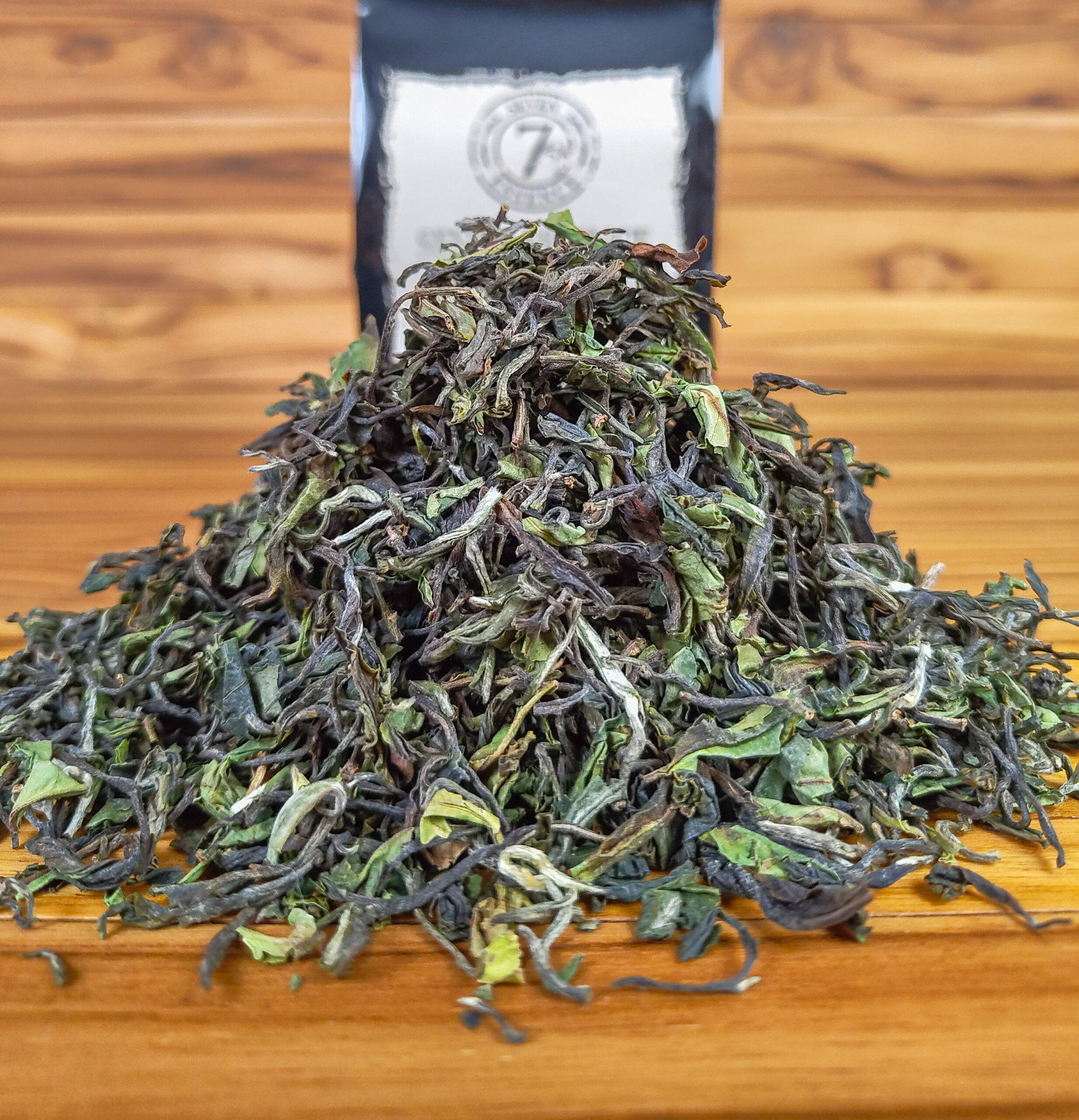
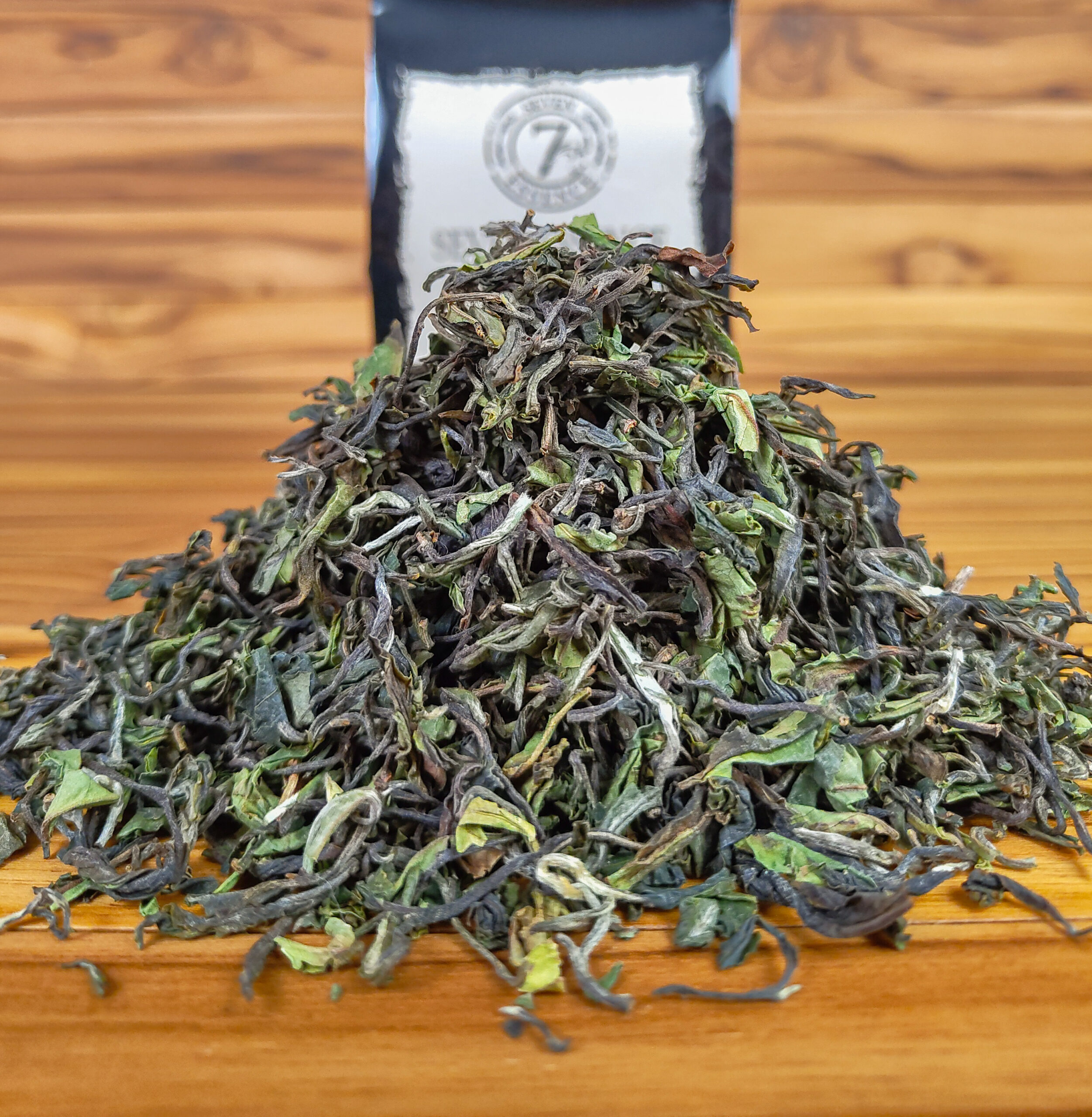
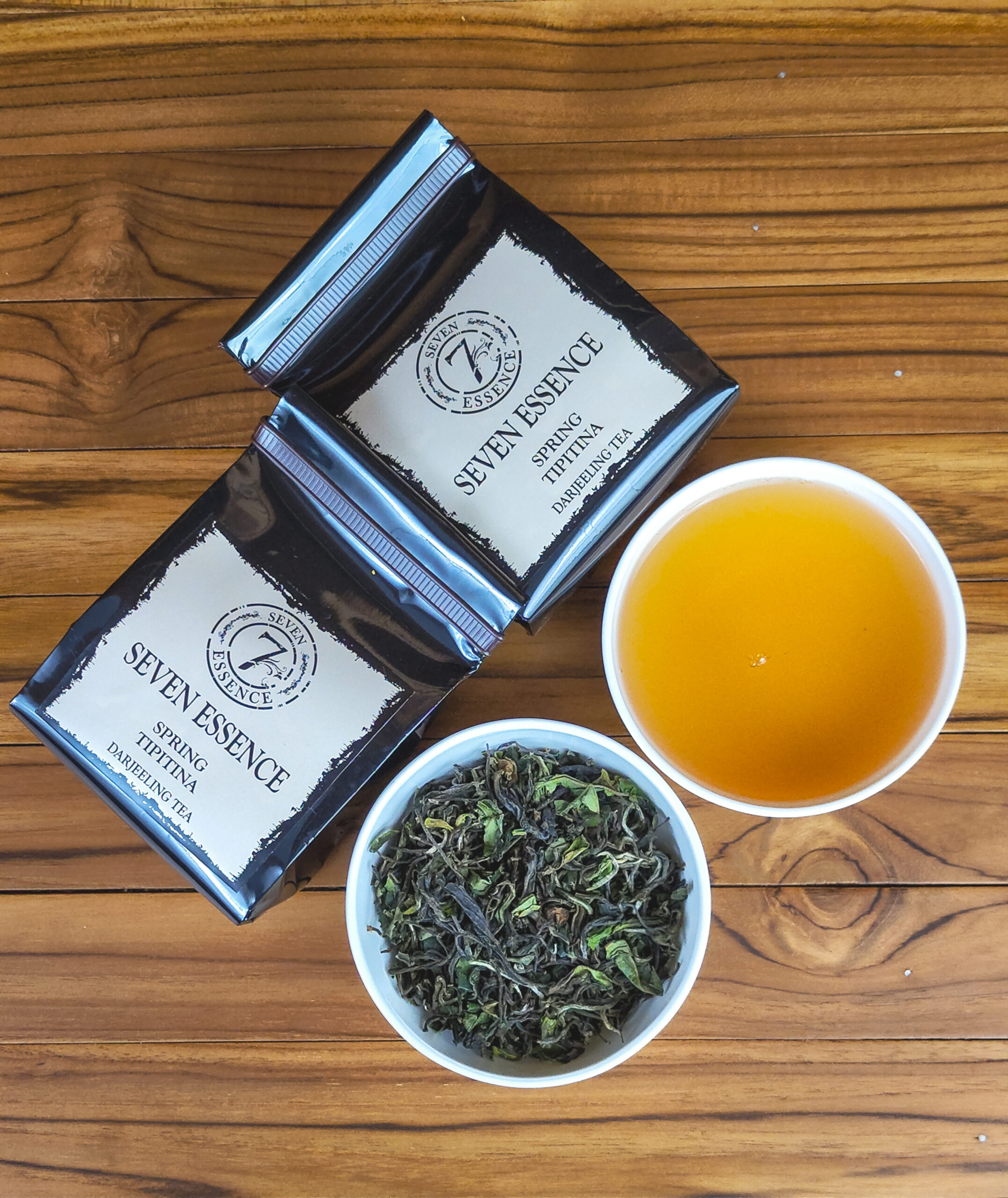
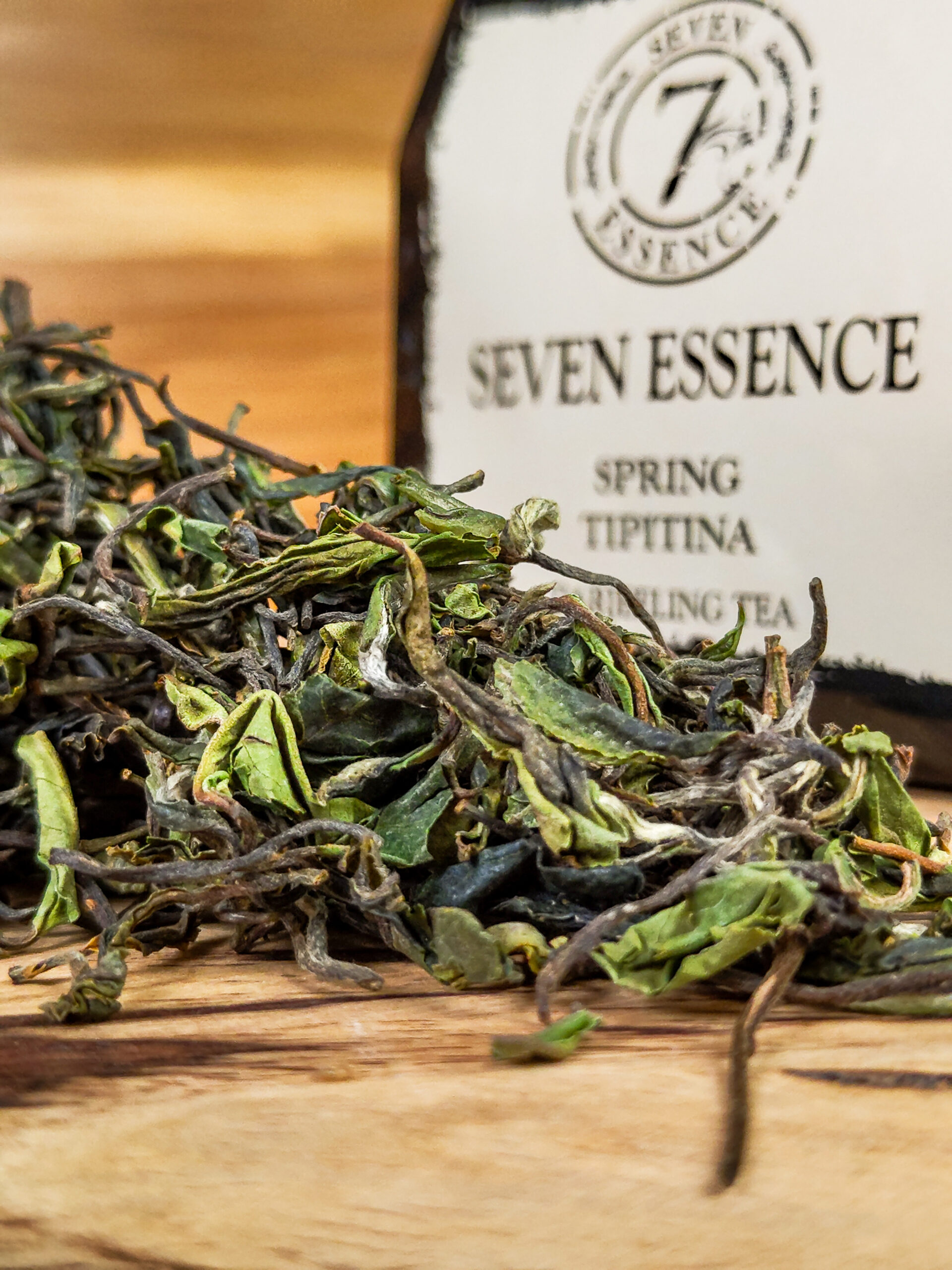
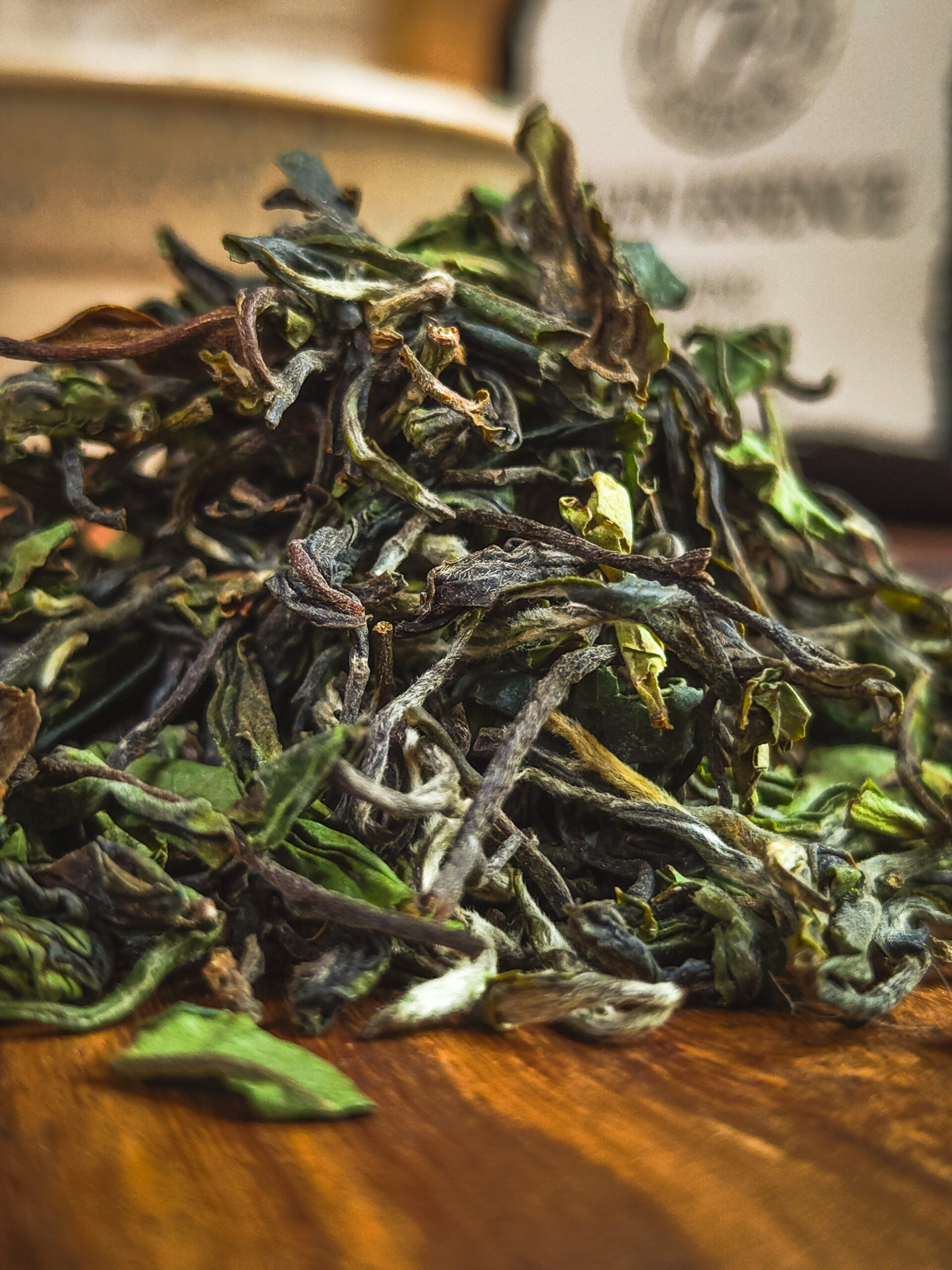
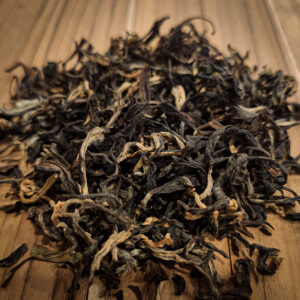
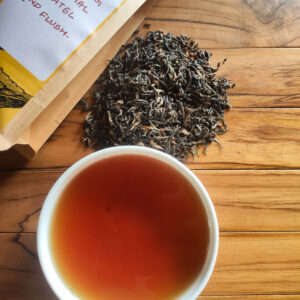
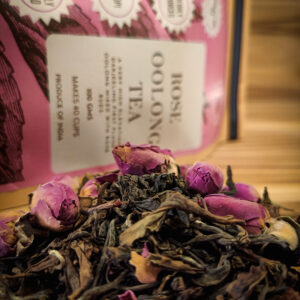
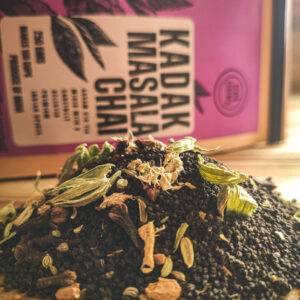
Reviews
There are no reviews yet.